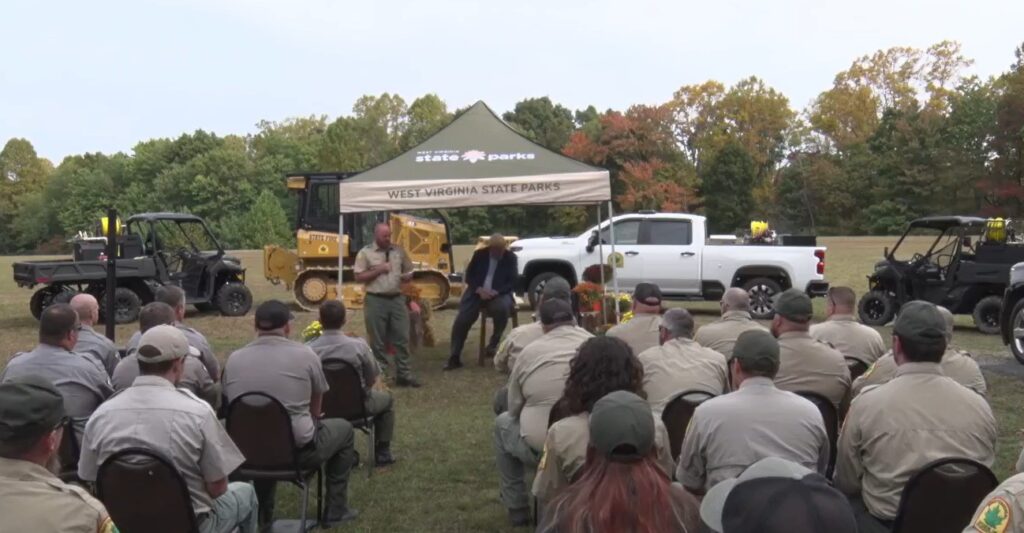 Wouldn’t our lives and jobs be easier if we could predict the future? This is a rhetorical question, and we know that we cannot know exactly what will occur. Yet this does not keep us from trying to figure out what will happen next so we can best be prepared. Planning is crucial to success, and having an educated guess about the future helps develop the best possible plan.
Wouldn’t our lives and jobs be easier if we could predict the future? This is a rhetorical question, and we know that we cannot know exactly what will occur. Yet this does not keep us from trying to figure out what will happen next so we can best be prepared. Planning is crucial to success, and having an educated guess about the future helps develop the best possible plan.
Oftentimes, the best predictor of the future is the past. There are no guarantees that this will always be true. (Just listen to the warnings you hear from your stock broker or financial advisor!) However, recent events establish trends that will continue until the next trends develop. If you are to predict what may occur in 2011, looking at 2010 will certainly help. If you take this approach, you will come to the conclusion that the economy will have the most influence on the fire service in the coming year.
Almost everything that changes in the fire service in the foreseeable future will be driven by the economy – its stability and growth. Until people are convinced that the worst is over and that they will get back to work, the government will be closely scrutinized. This includes the fire service.
Even as the economy continues to recover, many people are now working for less pay and fewer benefits. This fact contributes to the perception that many in government are overpaid and underworked. Whether or not this is true is irrelevant. Until good times return to a majority of households, those in government will remain the target of many people’s frustrations.
Doing more with less seems to be a popular mantra. I suppose that if you improved technology or developed new methods, this would be possible. More likely, the implication is that you have extra resources and if you manage them properly, you can get more done.
This could be interpreted to be somewhat insulting – implying that you have not been managing your resources as efficiently and effectively as you should have been. Now that the pressure is on, you will take your job more seriously and become the administrator you should have been all along! While this is a little facetious, most situations will not allow you to do more with less. You will do less with less.
If you agree that you will be doing less with less, then you will need to determine where services will be reduced. If you can do the same thing with less, then the question should be why were you wasting resources in the past? The issue should be that something will be different and that people will have to accept that things will be different.
In the fire services, we might not see the impact immediately. If the fire prevention bureau is cut, there won’t necessarily be a fire the next day. If stations are closed, the area nearest the station might not have a serious fire soon after the closing. Reduced staffing will reduce efficiencies and also expose firefighters to greater risks. It might be that blind luck has more to do with the outcomes than definitive predictions.
None of this sounds encouraging. Regardless, you are asked to put out the best product that you can. Even though it has become popular in some circles and with some politicians to demonize public safety as an unnecessary drain on the public finances, you are asked to continue providing the best possible service that you can with the resources that you are given. Efforts must be increased to stop and reverse the perception that the fire service is no longer an asset to the community, but an unsustainable cost to the community.
The influence of the economy on the services provided by fire departments will continue for the next few years at the least. This will force departments to continue to get more creative and look at things a little differently. Departments will need to look at doing more joint ventures with neighboring departments and even consider formal merging of all or part of their organizations.
Mutual aid will be used more. There is a caveat to this. At some point, communities involved in mutual aid must realize that for it to be successful, it has to be “mutual.” Some communities and politicians believe they can rely on mutual aid because of a low fire run volume. They believe that if they have few fires, then they don’t need to staff accordingly and will just call their neighbors. There are many flaws to this logic, and fire departments need to be aware of the potential issues with this approach to saving money.
Group purchasing offers the potential to save money. Departments that are willing to compromise on their specifications and uniqueness can reduce their costs on items from fire trucks to turnout gear to day-to-day supplies.
As funding gets tighter in 2011, you can expect more departments to look more closely than ever at joining forces with their neighbors to get better pricing that comes with larger-volume purchases. For this to work, it requires cooperation, trust and a willingness to compromise. Some key elements include the following:
- Establishing the group before the bids go out, not just extending the pricing after the fact.
- Giving up on the notion that your organization has to have something different.
- Planning purchases so the needs are known ahead of time.
- Drawing contributions from everyone.
Those looking to replace vehicles in the future may not get all the “bells and whistles” that they have had in the past. People outside the department with budget oversight will be asking more questions as to the bare-bones needs of the fire department.
Some departments will be forced to postpone significant purchases and will have to make do with what they have. This will lead to more maintenance costs and less reliability. It will affect service levels, but, as stated before, it is not often easy to predict when. Vehicles that require more service will be unavailable for response more often. Eventually, that will create an issue. The quality of the fleet will definitely get more notice. More departments will need to consider grants to help them, increasing competition for finite resources.
The increasing speed with which we receive information will continue to help and challenge fire departments. We all know that something that happens now will be sent throughout the Internet within minutes. This information can help us learn and increase our network. It can also create new problems that need to be addressed. Policies will need to be developed and adjusted to provide the appropriate direction. Departments and individuals will be motivated to perform better if they realize that they can be captured on video and their actions may be shared with millions. Someone is always watching, and now they can record it.
One only needs to watch the news or track the information passed on through the Internet to see that the world we live in is much different than it was just a few short years ago. Staffing is being reduced in many places, capital purchases are being delayed and training that is perceived to be non-essential (as a side note, I believe all training is essential) is being eliminated.
The next year will see departments fighting to hold onto what they have with hopes that the economy will continue to rebound. Things that are lost will be harder to replace or restore. Good planning and strong relationships will be essential. While there does not appear to be any immediate good news, there is no doubt the fire service will survive and figure out what it needs to do to serve the public.
Editor’s Note: Richard Marinucci is chief of the Northville Township (Mich.) Fire Department. He retired as chief of the Farmington Hills (Mich.) Fire Department in 2008, a position he had held since 1984. He is a past president of the International Association of Fire Chiefs (IAFC) and past chairman of the Commission on Chief Fire Officer Designation. In 1999 he served as acting chief operating officer of the U.S. Fire Administration for seven months. He holds three bachelor’s degrees in fire science and administration and has taught extensively.
More Fire Apparatus Current Issue Articles
More Fire Apparatus Archives Issue Articles

